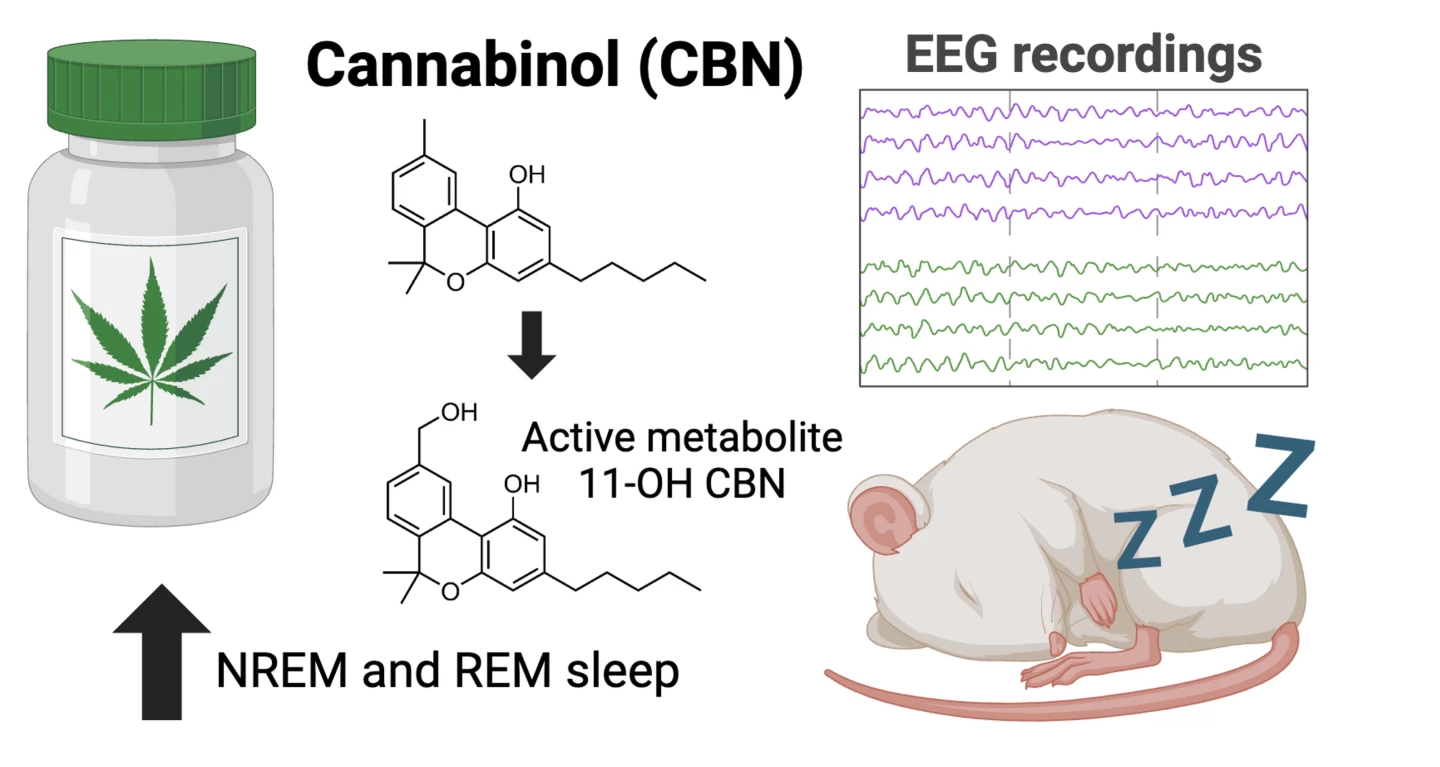For the first time, there's scientific evidence that a smaller, lesser known component of the cannabis plant – cannabinol – delivers better quality and longer sleep. It paves the way for finally having an effective sleep aid sourced from medical cannabis that's comparable to existing medications.
Researchers from the University of Sydney's Lambert Initiative have provided much-needed scientific evidence that backs anecdotal claims that an accumulation of cannabinol (CBN) in older plants has a sleep-inducing effect. It's a minor compound in the plant, and far less understood and studied than tetrahydrocannabinol (THC) and cannabidiol (CBD).
“For decades, cannabis folklore has suggested that aged cannabis makes consumers sleepy via the build-up of CBN, however there was no convincing evidence for this,” said lead author Jonathon Arnold, professor and director of preclinical research at the Lambert Initiative. “Our study provides the first objective evidence that CBN increases sleep, at least in rats, by modifying the architecture of sleep in a beneficial way.”

In this animal study, the team monitored sleeping rats' brain patterns to specifically assess non-rapid eye movement (NREM) and rapid eye movement (REM). NREM sleep is a key restorative stage, also important in sustaining memory functions. REM sleep, where dreams take place, is needed for emotional processing and brain health.
“CBN was found to increase both NREM and REM sleep, leading to increased total sleep time, with a comparable effect to the known sleep drug zolpidem," Arnold said.
Zolpidem, known best by brand name Ambien, is a heavy sedative that has been known to cause nocturnal behaviors such as sleepwalking and 'sleep eating.' It can also cause next-day 'brain fog' and drowsiness.
While CBN's 'parent' molecule is the hallucinogenic THC, the researchers found that this cannabinoid only weakly activated the CB1 cannabinoid receptors in the brain and did not result in intoxication. However it did impact the areas of the brain involved in sleep, boosting REM and non-REM sleep.
“This provides the first evidence that CBN indeed increases sleep using objective sleep measures," said Arnold. "It was a surprise that CBN metabolism in the body can yield a much greater effect on cannabinoid CB1 receptors than the parent molecule CBN, which has much more limited activity."
As the researchers noted in the study: "CBN increased sleep stability as evidenced by longer duration NREM sleep bouts; this is significant as increased sleep stability has been associated with improved subjective sleep quality."
The findings suggest that CBN may be best suited for patients who have trouble staying asleep or experience early morning awakening insomnia, because it has a delayed onset of sleep but is far more enduring than zolpidem.

"Our study is unique because we provide data on the effects of CBN as a single molecule," the researchers noted. "Most human studies that have assessed CBN’s effects on sleep combined CBN with other phytocannabinoids, and have failed to assess whether CBN has hypnotic effects alone."
This was the case for a human sleep trial conducted in 2018, which did not specifically target CBN. Purified CBN sleep aids are available for sale in many states in the US, however scientific evidence of efficacy and tolerance has been lacking.
More focus on CBN is expected to follow this animal study, with the results of the parallel human trial led by Lambert Initiative's director of clinical research, Professor Iain McGregor, due to be published soon.
“Our research encourages further basic and clinical research on CBN as a new treatment strategy for sleep disorders, including insomnia," said McGregor. "Our clinical study only administered CBN on a single occasion. A trial on a larger scale, that includes repeated dosing, is the logical next step."
The study was published in the journal Neuropsychopharmacology.
Source: The University of Sydney via Scimex








